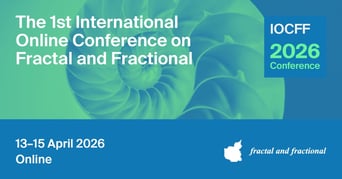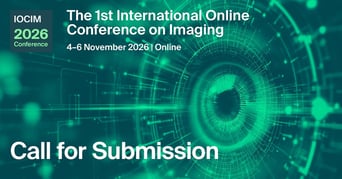News & Conferences
Latest News & Announcements
Latest Conferences
Propose a Conference Collaboration
Promote and publicise your upcoming conference with MDPI.
All News & Conferences
News & Announcements
MDPI INSIGHTS: The CEO's Letter #31 - MDPI 30 Years, 500 Journals, UK Summit, Z-Forum Conference, APE
2 February 2026
News & Announcements
MDPI’s Newly Launched Journals in December 2025
9 January 2026
News & Announcements
Article Layout and Template Revised for Future Volumes
11 December 2025
MDPI Conference
The 1st International Online Conference on Fractal and Fractional: Theoretical Foundations and Interdisciplinary Applications
13 - 15 April 2026
News & Announcements
MDPI Launches the Michele Parrinello Award for Pioneering Contributions in Computational Physical Science
6 November 2025
News & Announcements
MDPI INSIGHTS: The CEO's Letter #28 - WSF11, Nobel Laureates, Proofig AI, Romania Summit, STM and FBF
4 November 2025
News & Announcements
MDPI’s Newly Launched Journals in September 2025
15 October 2025
News & Announcements
MDPI INSIGHTS: The CEO's Letter #27 - OASPA 2025, COUNTER 5.1, UK Summit in London, MDPI at the Italian Senate
2 October 2025
News & Announcements
2024 MDPI Top 1000 Reviewers
1 October 2025
News & Announcements
Nobel Prize — The Science Behind the Prize
30 September 2025
4 - 6 November 2026
of 7














